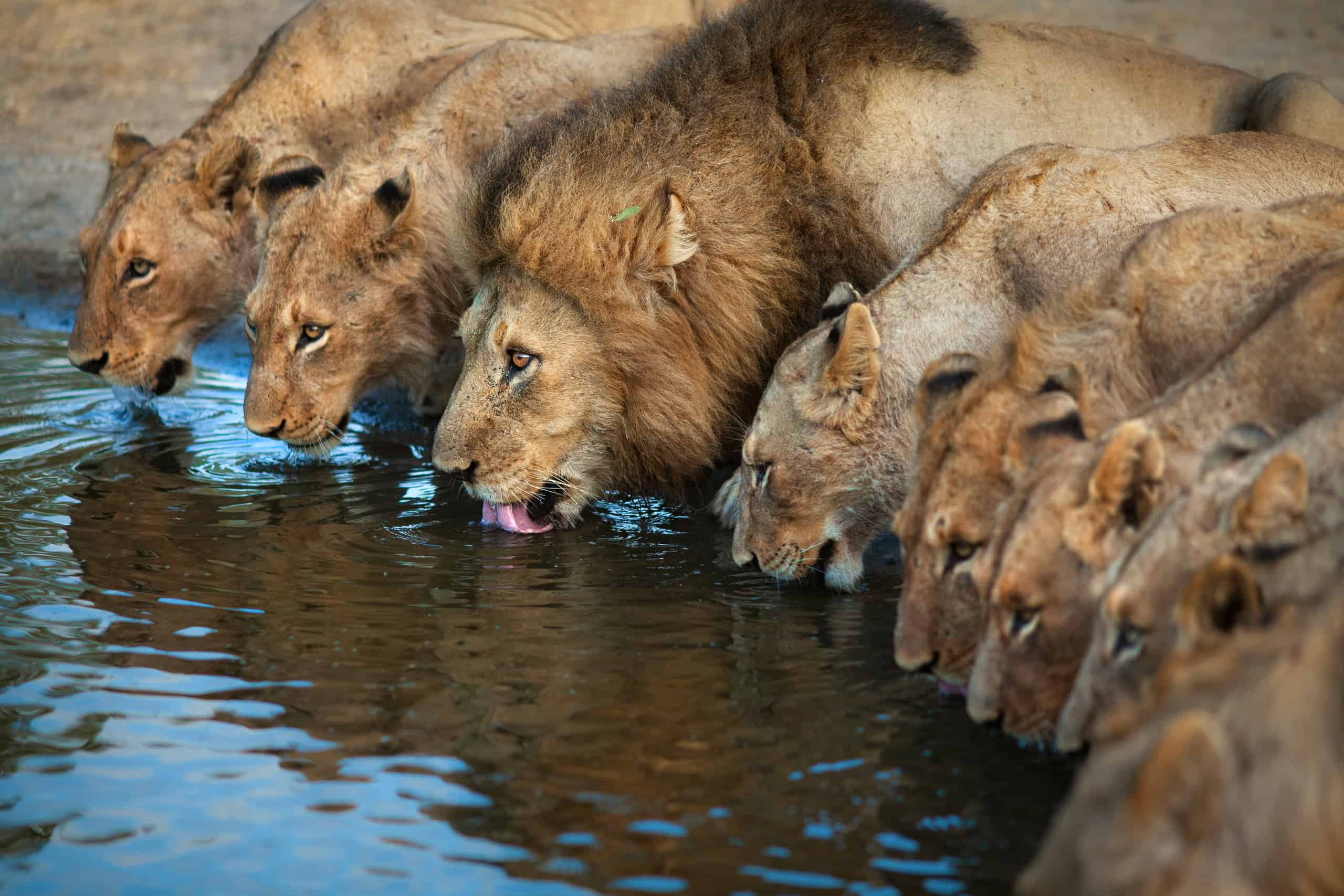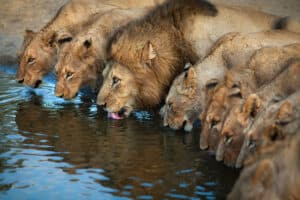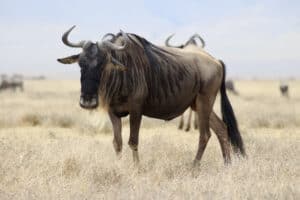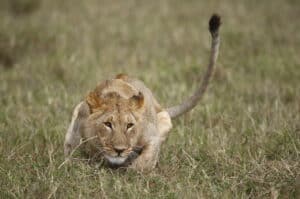Natives of Africa, lions (Panthera leo) are some of the most notable members of the animal kingdom. A top apex predator and the second-largest big cat species in the world, the lion is widely regarded as a symbol of pride, strength, leadership, and bravery. A small, endangered subspecies called the Asiatic lion exists in India’s Gir Forest.
Known for their striking appearance, lions have vibrant coats ranging in color from yellow-gold to tawny or even reddish-brown. One can easily distinguish between males and females as they grow. For instance, males develop manes as they physically mature. Interestingly, the length, size, and color of a male lion’s mane are due to factors such as genetics, age, and hormones.
These incredible beasts have muscular frames and sharp teeth and claws that help them tear through the flesh of their prey. While male lions weigh between 330 and 550 pounds, females (lionesses) typically weigh between 265 and 400 pounds. Creatures of this size are required to eat plenty of food to maintain their weight. In fact, lions can eat up to 110 pounds of meat in one sitting. That large feast amounts to roughly a quarter of a lion’s body weight! However, their typical portion is around 11-15 pounds of meat. With those staggering numbers in mind, you’re probably wondering how long lions can afford to go without eating. Discover this answer and three more amazing facts about their diet below.
How Long Can Lions Go Without Eating?
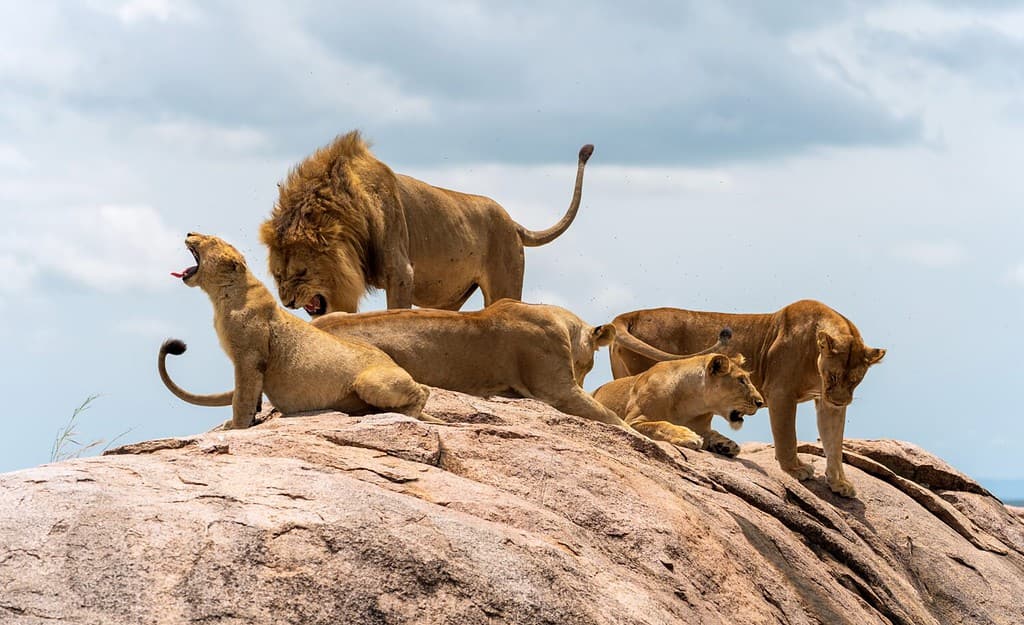
Lions can eat up to 110 pounds of meat in one sitting.
©Howard Darby/Shutterstock.com
While lions have big appetites, they typically eat every three or four days. It takes a considerable amount of time, effort, and energy to secure a kill, so their feed will keep them full for several days. In times of scarcity, lions may be forced to go extended periods of time without eating. Lions would prefer to eat every few days, but they are capable of surviving without meat for more than a week at a time. They will also settle for smaller prey, such as rodents or reptiles, if large prey are in short supply.
Do Lions Need Water to Survive?
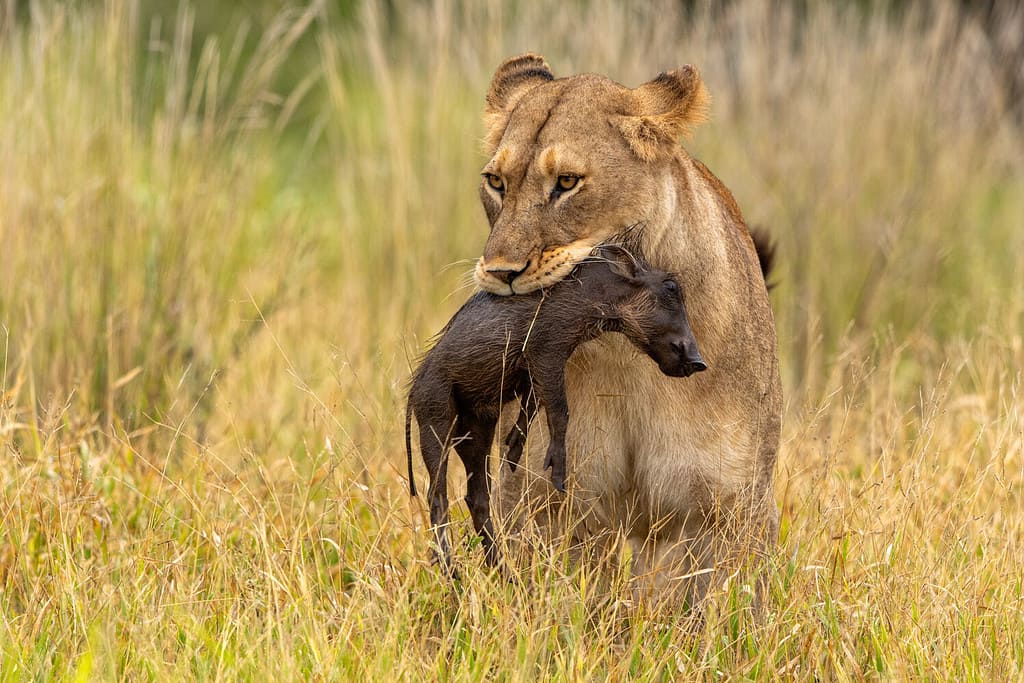
Lions are capable of surviving without meat for more than a week at a time.
©Wim Hoek/Shutterstock.com
Lions do need water to survive and would prefer to drink water every day. It is advantageous for them to locate natural water sources (such as watering holes) because water attracts prey species. However, lions have adapted to live in hot, dry climates where water can be hard to come by. Therefore, lions are less dependent on conventional sources of water. In these cases, they extract water and other nutrients from prey and plants.
What Do Lions Eat?
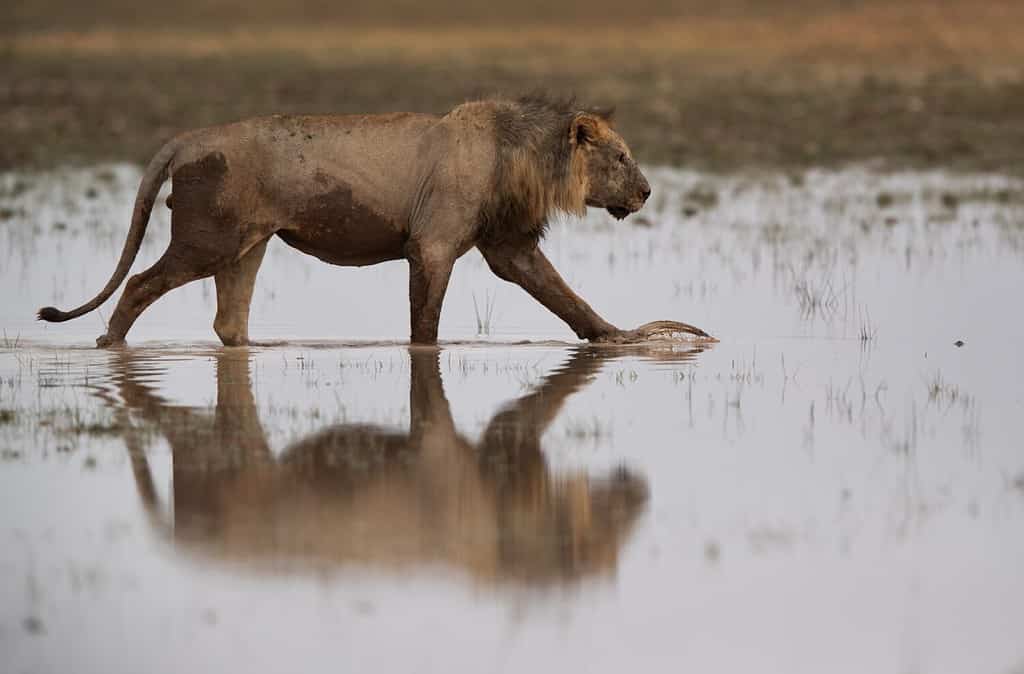
The length, size, and color of a male lion’s mane are due to factors such as genetics, age, and hormones.
©Dr Ajay Kumar Singh/Shutterstock.com
Animal diets are split into three main categories: herbivores, omnivores, and carnivores. Herbivorous animals are vegetarians, meaning they rely solely on plant sources. An omnivorous diet comprises both meat and plant sources. Lions are carnivorous, which means the majority of their diet consists of animals.
Lions gorge on a variety of prey species, but they primarily hunt large animals. They routinely take down hefty prey such as buffalo, wildebeest, and zebra. Lions can hunt independently or in family units called prides. Prides are majority female, consisting of numerous lionesses, cubs, and just a few males.
Both males and females possess unique characteristics that make them valuable hunters. Males are significantly bigger, stronger, and more powerful, which aids the pride in capturing and killing large prey. Lionesses are much lighter and quicker, and they’re incredibly savvy hunters. Hunting in groups gives lions strategic advantages and dramatically increases their odds of securing a kill.
What Are Lions’ Preferred Meal?
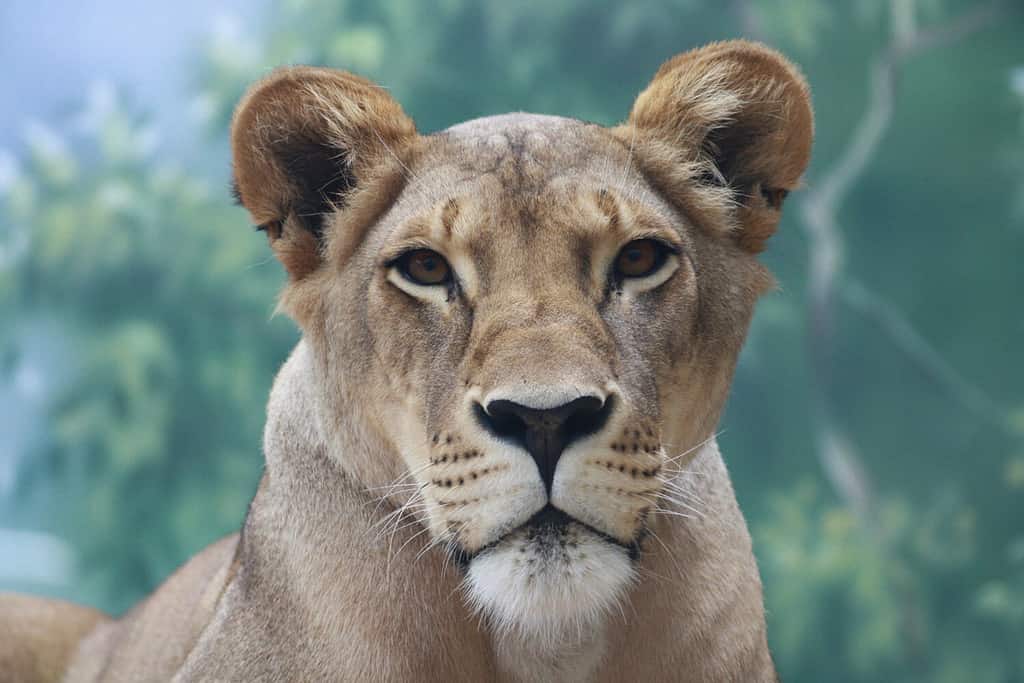
Lions are carnivorous, which means the majority of their diet consists of animals.
©Igor Anfinogentov/Shutterstock.com
Preferentially, lions prey on species within a weight range of 190-550 kg (418-1212 pounds). That includes animals like buffalo, zebra, giraffe, and wildebeest. Though they fall below a lion’s preferred weight range, warthogs are a good target because they lack speed and vigilance.
Lions’ preferences are largely tied to convenience. Animals in large herds are more vigilant, which means they’re harder to catch off guard and more difficult to hunt. Lions prefer to hunt prey that are in smaller groups and closer in proximity (within 200 meters). As the saying goes, “Work smarter, not harder.”
Recap
Lions are an impressive big cat species with fascinating eating habits. For a large animal with an even larger appetite, it’s incredible how long they can survive without food. It’s also impressive that a predator of this size doesn’t require a natural water source to live — capable of deriving all the water it needs from plants and animals it consumes. Just like humans, lions have preferences when it comes to what they eat.
Thank you for reading! Have some feedback for us? Contact the AZ Animals editorial team.

